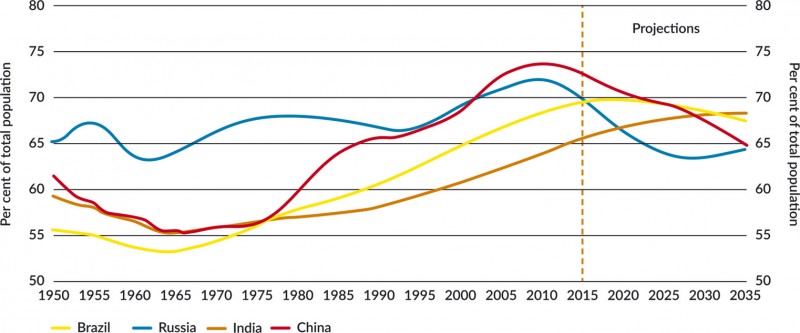
New Delhi: India, one of the world's fastest-growing economies, has set its sights on a comprehensive and ambitious economic strategy to propel its development and transform it into a global powerhouse by 2035. With a diverse and vibrant population, a burgeoning middle class, and a forward-thinking government, India aims to unleash its potential and address key challenges to ensure sustained growth, inclusive development, and enhanced global competitiveness. This article explores India's economic strategy and the transformative measures that will shape its path toward prosperity over the next decade and a half.
Also read: India's Coal: Lost Potential and Missed Opportunities in Global Economic Impact
India recognizes the critical role of infrastructure in driving economic growth and attracting investments. By 2035, the country aims to develop world-class infrastructure across various sectors, including transportation, energy, logistics, and digital connectivity. The government's flagship initiatives such as the National Infrastructure Pipeline, Bharatmala Pariyojana, and Sagarmala will receive substantial investments, enhancing connectivity within India and promoting seamless trade.
India aspires to become a global leader in innovation and technology, recognizing its potential to drive economic progress. To achieve this, the government is focused on promoting research and development, fostering collaboration between industry and academia, and nurturing a robust startup ecosystem. Initiatives like Digital India, make in India, and Atmanirbhar Bharat are aimed at harnessing India's human capital and entrepreneurial spirit to create a vibrant technology-driven economy.
Also read: Oil Updates: Prices are expected to rise this week as supply reductions offset demand worries
A skilled workforce is the backbone of a thriving economy, India's economic strategy emphasizes comprehensive skill development initiatives. By 2035, the country aims to enhance the quality of education, reorient the curriculum to meet industry demands and establish training centers that cater to emerging sectors. The Skill India Mission, along with programs to encourage vocational training and entrepreneurship, will empower millions of Indians with the skills needed for a competitive job market.
India recognizes the importance of sustainable and inclusive growth to secure its long-term economic future. The country is committed to reducing its carbon footprint and transitioning to clean energy sources. By 2035, India aims to achieve a significant share of renewable energy in its energy mix, enhance energy efficiency, and promote sustainable practices across sectors. The government's initiatives such as the National Solar Mission and the Electric Mobility Scheme will drive India's green transformation.
Also read: Microsoft's market cap reaches a record $2.6 trillion thanks to an AI push
A robust and stable financial system is crucial for economic growth and attracting investments. India's economic strategy for 2035 focuses on strengthening the banking sector, enhancing financial inclusion, and developing robust capital markets. Initiatives like the Pradhan Mantri Jan Dhan Yojana, Digital Payments Mission, and regulatory reforms will create a more inclusive and transparent financial ecosystem, supporting entrepreneurship, and fostering innovation.